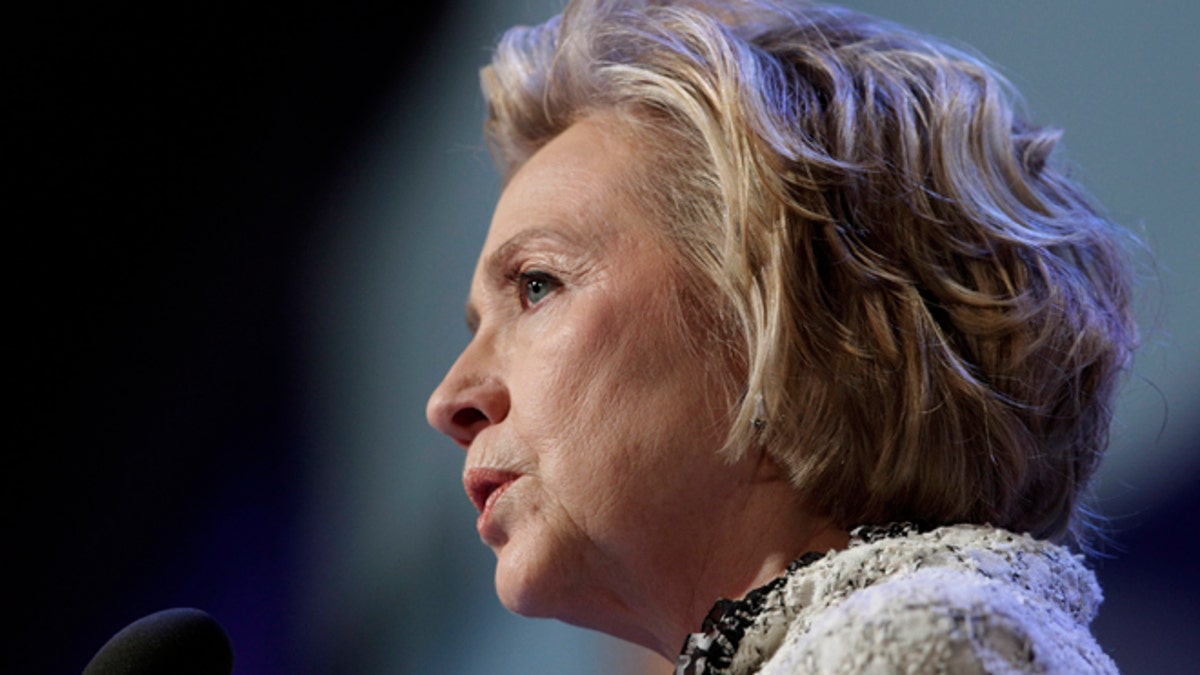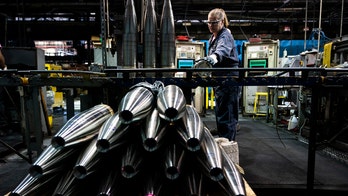
Sept. 25, 2013: Hillary Rodham Clinton speaks at the Clinton Global Initiative in New York. (AP)
The filmmaker who was planning to produce a controversial documentary on Hillary Clinton has pulled out of the project, claiming that Clinton aides exerted pressure on him and that dozens of potential sources refused to grant interviews.
Director Charles Ferguson revealed his decision regarding the now-canned documentary for CNN Films in a column posted Monday on The Huffington Post. He cited opposition from members of both parties -- the Republican National Committee had threatened to boycott presidential primary debates hosted by CNN over the project -- but indicated the strongest resistance came from the Clinton world.
"When I approached people for interviews, I discovered that nobody, and I mean nobody, was interested in helping me make this film," he said. "Not Democrats, not Republicans -- and certainly nobody who works with the Clintons, wants access to the Clintons, or dreams of a position in a Hillary Clinton administration."
Ferguson said that after approaching more than 100 people, "only two persons who had ever dealt with Mrs. Clinton would agree to an on-camera interview, and I suspected that even they would back out."
Ferguson described how he faced resistance from Clinton's inner circle from the beginning.
After he signed a contract with CNN Films, he said he was grilled by Clinton's press secretary. "He interrogated me; at first I answered, but eventually I stopped," Ferguson wrote.
He said Clinton aide Phillipe Reines likewise "interrogated" people at CNN. "When I contacted him, he declined to speak with me," Ferguson wrote.
Ferguson said he was also denied access to Clinton herself. After asking to speak with her, he wrote, "The answer that came back was, basically, over my dead body."
Ferguson, in explaining his decision, also cited the pressure on both sides of the aisle regarding the film. While Democrats and Clinton aides were apparently concerned the documentary would dig up scandalous details from the past, Republicans were openly concerned it would paint Clinton in a flattering light in advance of a possible 2016 presidential bid.
In August, the Republican National Committee voted to boycott any primary debates planned by CNN over the documentary. The RNC made a similar decision regarding NBC, because of a Clinton-themed miniseries.
"Neither political party wanted the film made," Ferguson said.
Ferguson reserved choice words for the Clintons. He claimed that after running into Bill Clinton during a June dinner, "he proceeded to tell me the most amazing lies I've heard in quite a while" about the financial crisis.
He also blasted Media Matters' David Brock for alleging that the documentary would revive old Clinton scandal stories. "Coming from Mr. Brock, this was rather amusing. David Brock began life as an ultraconservative 'investigative journalist,' quotation marks very much intended, spreading scandal with little regard for truth," he wrote.
Ferguson said his decision to cancel the film, ultimately, is "a victory for the Clintons, and for the money machines that both political parties have now become," but not for the media.
"I still believe that Mrs. Clinton has many virtues including great intelligence, fortitude, and a deep commitment to bettering the lives of women and children worldwide. But this is not her finest hour," he wrote.




